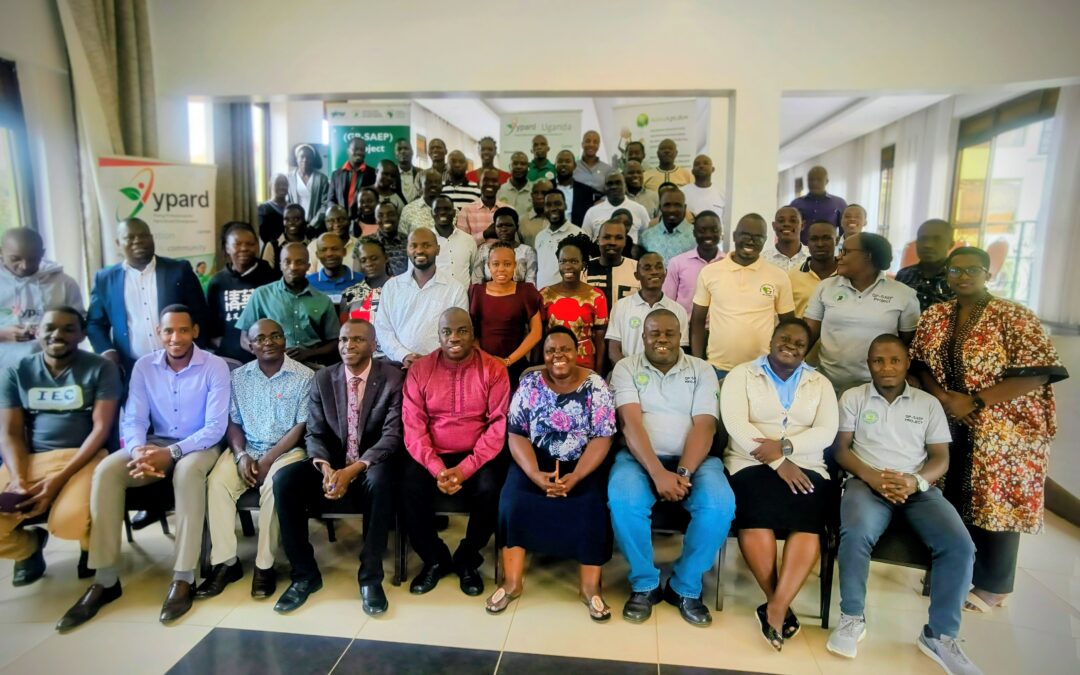Across Uganda, smallholder farmers are grappling with climate change, declining soil fertility, erratic rainfall, rising input costs, pests and diseases, among other challenges. Yet, amidst these challenges lies an avenue to rebuild the resilience of farming communities through agroecology.
Agroecology is a way of life that blends traditional knowledge with modern ecological science. It promotes diversified farming systems, soil regeneration, and farmer-led innovation, which are key ingredients for sustainable food systems and climate resilience. Recognizing this potential, the Global Programme for Small-scale Agroecology Producers and Sustainable Food Systems Transformation (GP-SAEP), implemented by the Uganda Forum for Agricultural Advisory Services (UFAAS), is empowering small-scale farmers to transition toward more sustainable, inclusive, and knowledge-driven agriculture through participatory Rural Advisory Services (RAS).
In Uganda, the program is being implemented by the Uganda Forum for Agricultural Advisory Services (UFAAS), in partnership with Access Agriculture and the Young Professionals in Agricultural Research and Development (YPARD), with support from the African Forum for Agricultural Advisory Services (AFAAS) and the Global Forum for Rural Advisory Services (GFRAS).
A Platform for experience sharing, learning, and reflection
On 23rd October 2025, more than 60 participants gathered at Arch Hotel in Kampala for the 2nd GP-SAEP National Workshop for Experience Sharing and Learning. The event provided a space for sharing field experiences, learning, and reflection among teams from five clusters: Bugiri, Buikwe, Lira, Sembabule, and Soroti. Participants included Master Trainers, Rural Advisory Service Facilitators (RASFs), Youth Fellows, Entrepreneurs for Rural Access (ERAs), and representatives from government and partner organizations.
The event was officiated by Dr Patience Rwamigisa, Assistant Commissioner in the Department of Agricultural Extension and Skills Management, at the Ministry of Agriculture, Animal industry, and Fisheries (MAAIF), who applauded the team for the great work, underscored the role of partnerships such as the GPSAEP in advancing extension, and, challenged the implementation team to align the work with government agricultural programs to ensure harmonised pluralistic agricultural extension.
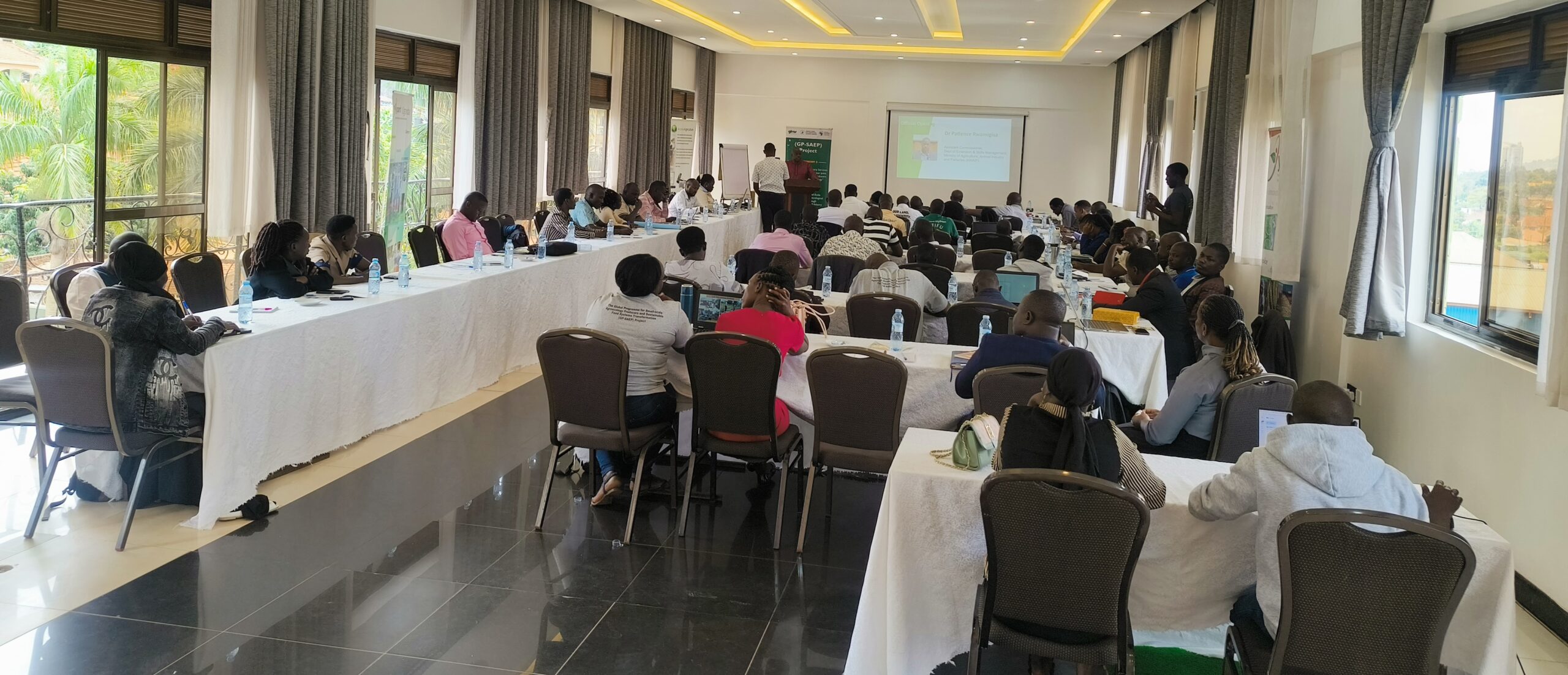
Participants during the experience sharing event
Since the first experience-sharing workshop in 2024, these field teams were deeply engaged with farming communities through Peer Learning Platforms (PLTs). Together, they have co-created knowledge on a number of practices, including: the use of Azolla and Black soldier fly as animal feeds, composting, natural pest management, and other agroecological innovations, often supported by video-based learning tools and farmer-to-farmer exchanges.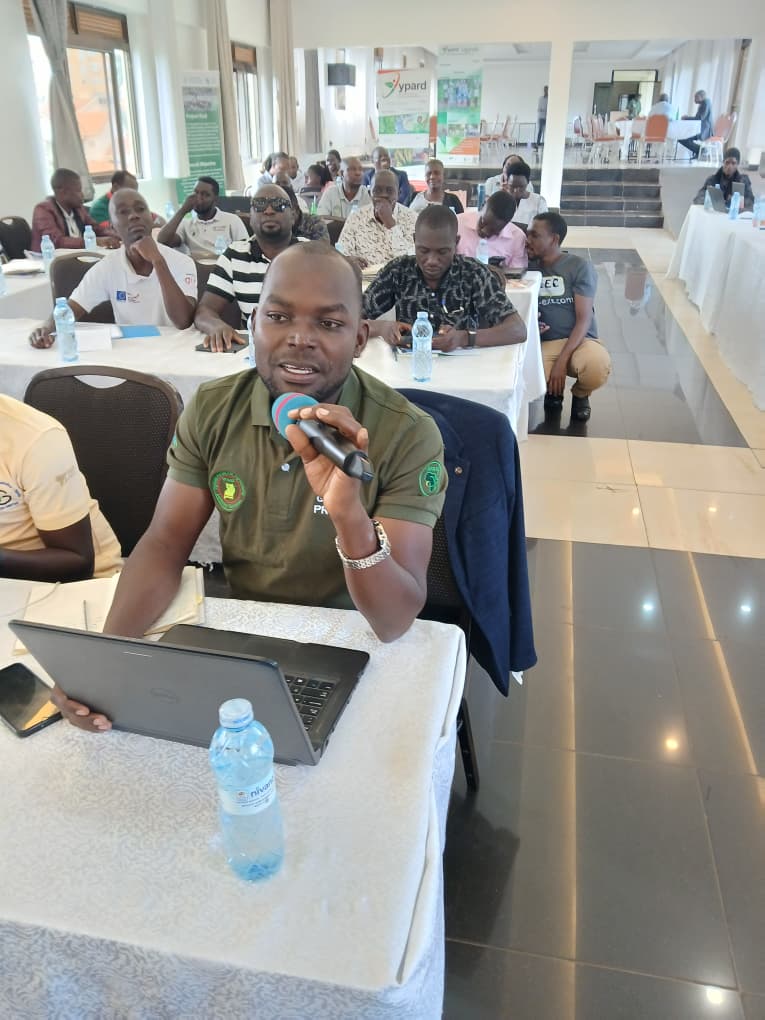
Learning and co-creating solutions
As teams presented their cluster-level experiences, several stories of innovation, trial, experimentation, and resilience emerged. Farmers are increasingly experimenting with local materials to improve soil fertility, reclaiming degraded land, and reducing dependence on costly synthetic agricultural inputs. From the learnings across other communities, farmers, together with the RAS, are repeating processes with different levels of input to get different results.
In Buikwe cluster, for example, farmers and RAS were on the verge of giving up when their Azolla pond failed, the Azolla became slimy, changed colour from green to brown, and was unfit for animal feed. From another community, they learnt that their pond failed because it was ‘over-manured’, which impeded growth.
In the subsequent trial, we reduced the levels of fertilizers and growth was optimum,” remarked Andrew Munyole, one of the Master Trainers.
The participants reflected on what worked well, what didn’t work, and how to strengthen farmer engagement in the next phase of the project. From the stories shared, learning is a continuous process, with extension workers also learning from smallholder farmers, and recognising the crucial role of the GPSAEP partnerships with different methodologies to aid farmers to transition to agroecology.
The introduction of video sessions by Access Agriculture has simplified my work. Through the videos, extension is spiced up and this speeds up farmers’ understanding of what we train them on” remarked Patricia Adong, a RAS facilitator from Lira cluster, who mentioned that farmers watched a video on benefits of mucuna in revitalising the soil, appreciated it, and asked her where they can get planting materials.
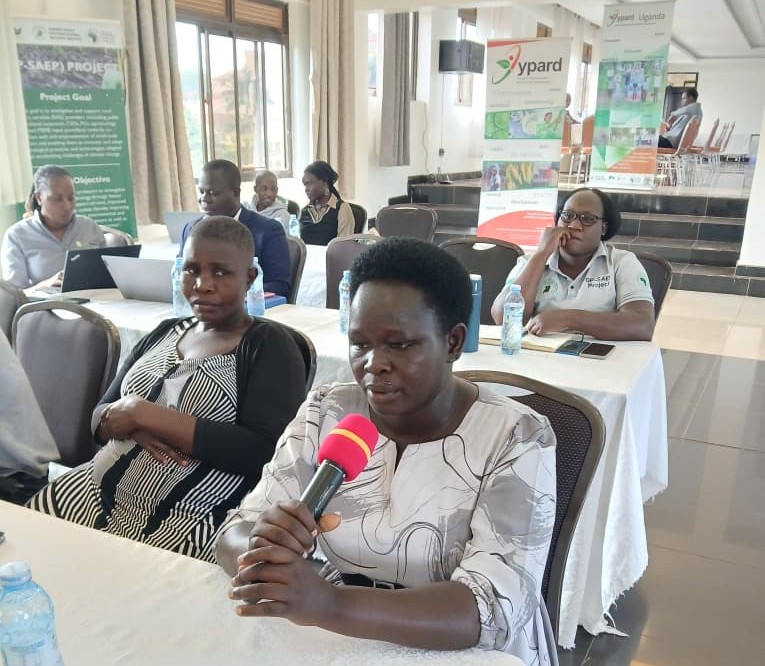 Patricia Adong, a RAS facilitator during the event
Patricia Adong, a RAS facilitator during the event
The experience sharing workshop confirmed how grassroots farmer-led innovations, co-created with rural advisors and supported by local and international partners, can enhance the transition to agroecology and strengthen the resilience of smallholder agriculture. The project is also implemented in Madagascar, Costa Rica, and Ecuador. 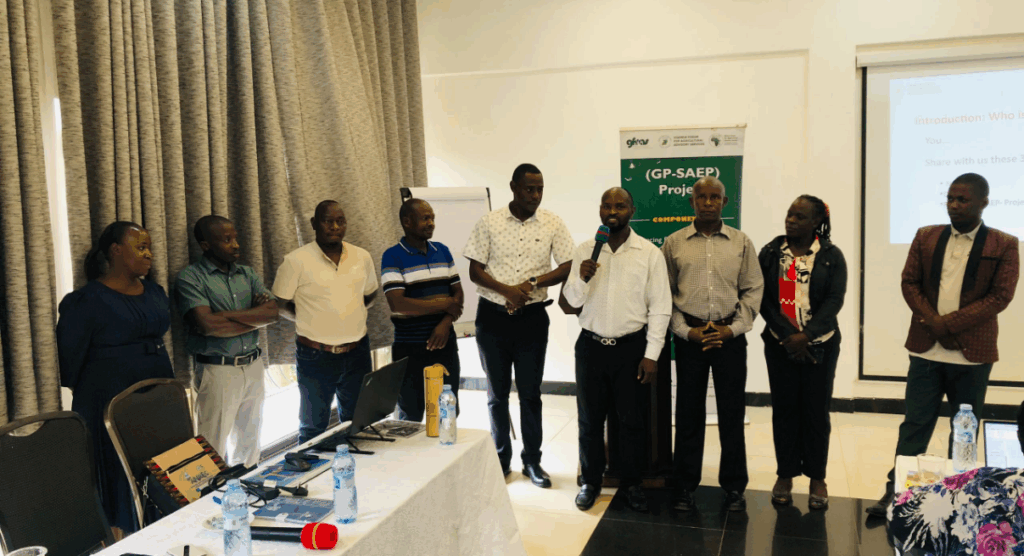 Sembabule cluster members at the event.
Sembabule cluster members at the event.
About UFAAS:
Uganda Forum for Agricultural Advisory Services (UFAAS) is the country chapter of the African Forum for Agricultural Advisory Services (AFAAS) in Uganda. It is a forum that brings together a wide range of actors involved in Agricultural Extension and Advisory Services (AEAS) in Uganda. UFAAS was launched in May 2011 and is registered in Uganda. AFAAS is the umbrella network organisation for AEAS in Africa. It operates within the framework of the Comprehensive Africa Agriculture Development Programme (CAADP), with a focus to Pillar IV.
Compiled by Elizabeth Asiimwe
For correspondence, please contact Beatrice Luzobe on ufaas2013@gmail.com

